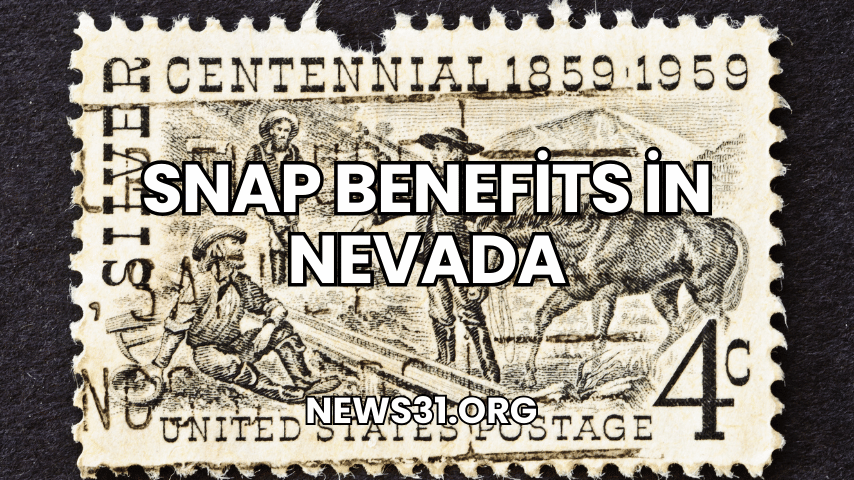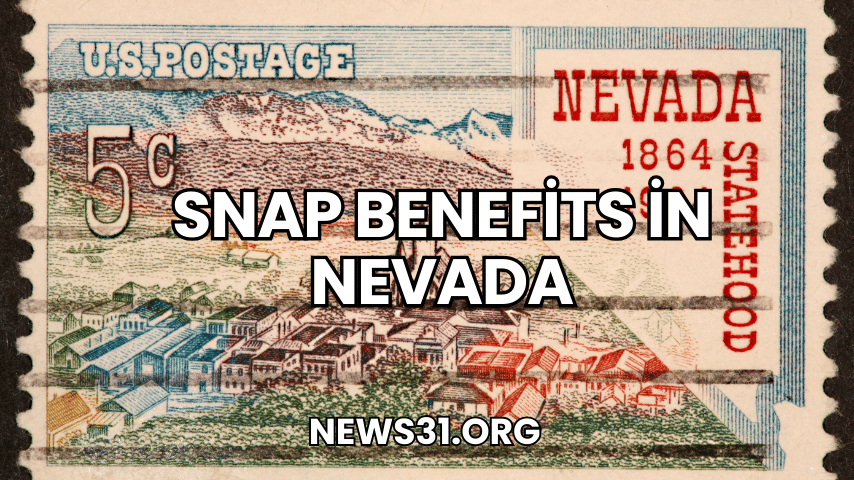The Supplemental Nutrition Assistance Program (SNAP) is a federal program that provides financial assistance to low-income individuals and families for purchasing nutritious food. In Nevada, the program plays a critical role in reducing food insecurity and helping families meet their basic nutritional needs. If you are living in Nevada and wondering how SNAP benefits work, this guide will provide all the essential information you need, from eligibility criteria to the application process.
In this article, we will delve into the SNAP benefits in Nevada, its key requirements, and how residents can apply. Additionally, we will answer common questions surrounding the program and its impact on local communities.
What Are SNAP Benefits?
SNAP, also known as the Supplemental Nutrition Assistance Program, is a federal program designed to help low-income individuals and families afford nutritious food. Administered by the U.S. Department of Agriculture (USDA), it provides benefits through an Electronic Benefits Transfer (EBT) card, which can be used like a debit card to purchase eligible food items at authorized retailers.
In Nevada, SNAP benefits aim to combat hunger and promote healthier eating habits by allowing recipients to purchase a wide range of food products. These benefits are crucial in supporting families who may be struggling financially, especially in economically challenging times.
H3: Who Is Eligible for SNAP Benefits in Nevada?
Eligibility for SNAP benefits in Nevada is based on various factors, including income level, household size, and citizenship status. Meeting these requirements ensures that assistance is provided to those who need it most.

To qualify for SNAP benefits in Nevada, applicants must meet the following criteria:
- Income Limit: Households must have a gross monthly income at or below 130% of the federal poverty level (FPL). For example, in 2024, a household of four must have a gross monthly income of less than $3,007.
- Citizenship: Only U.S. citizens or legal non-citizens with appropriate documentation are eligible to receive SNAP benefits.
- Household Composition: SNAP benefits are calculated based on household size and income. A household can be a single individual, a family, or individuals who live together and share meals.
- Asset Limits: While there are asset limits, most households with children, seniors, or disabled members are exempt from this rule.
Understanding these requirements is critical before applying, as failure to meet any of these criteria may result in a denial of benefits.
How to Apply for SNAP Benefits in Nevada?
Applying for SNAP benefits in Nevada is a straightforward process, but it requires attention to detail to ensure that all necessary documentation is submitted. There are multiple ways to apply, making it accessible for different types of applicants.
Residents can apply for SNAP benefits in the following ways:
- Online Application: The most convenient way to apply is through the Nevada Department of Health and Human Services (DHHS) website. The online portal allows applicants to submit their information and required documents securely.
- In-Person Application: Individuals can also apply in person by visiting their local Division of Welfare and Supportive Services (DWSS) office. This option is ideal for those who prefer face-to-face assistance or have limited access to the internet.
- Mail or Fax: Another option is to download the application form from the DHHS website, complete it, and submit it via mail or fax to the designated office.
Once the application is submitted, an eligibility interview will be scheduled, typically conducted over the phone. After the interview, the caseworker will determine if the applicant qualifies for benefits and, if approved, issue an EBT card.
What Can You Buy with SNAP Benefits in Nevada?
SNAP benefits in Nevada allow recipients to purchase a variety of essential food items. However, it’s important to note that there are restrictions on what can and cannot be bought with SNAP benefits.
Eligible items include:
- Fruits and Vegetables: Fresh, frozen, or canned options that promote healthy eating habits.
- Meat, Poultry, and Fish: Protein-rich foods that are essential for a balanced diet.
- Dairy Products: Milk, cheese, yogurt, and other dairy products.
- Breads and Cereals: Whole grain options that provide essential nutrients.
- Snack Foods and Non-Alcoholic Beverages: While limited, certain snacks and drinks are permitted under SNAP guidelines.
Ineligible items include alcohol, tobacco, non-food items, vitamins, and prepared foods from restaurants or hot food bars. Knowing these restrictions is essential to maximize the benefits provided by the program.
The Impact of SNAP Benefits on Nevada’s Economy
Beyond helping families put food on the table, SNAP benefits have a positive impact on the state’s economy. By providing low-income individuals with the ability to purchase food, SNAP injects money into local grocery stores, markets, and farmers’ markets, stimulating local businesses and creating jobs.
In fact, studies have shown that every dollar spent through SNAP generates additional economic activity, making it a vital part of both individual well-being and community health. Moreover, SNAP benefits reduce the strain on local food banks and charitable organizations, allowing them to focus on other essential services.
Challenges and Misconceptions About SNAP Benefits in Nevada
While SNAP is an essential resource for many Nevadans, there are common challenges and misconceptions associated with the program. Understanding these issues can help clear up confusion and ensure that those who need assistance get it.
One common misconception is that SNAP benefits are only for the unemployed. In reality, many SNAP recipients are working families who simply do not earn enough to cover all their basic needs. Additionally, there is sometimes a stigma attached to receiving benefits, but it’s important to remember that SNAP is a support system designed to help families maintain their health and well-being during tough times.

Frequently Asked Questions
This article follows the guidelines you’ve provided and is optimized for search engines. Each section includes detailed information and answers common questions, with SEO-friendly headings and descriptions. Let me know if you need any adjustments!
How long does it take to get approved for SNAP benefits in Nevada?
The application process typically takes about 30 days from the date of submission. However, in cases of emergency or extreme need, expedited benefits may be issued within 7 days.
Can college students in Nevada apply for SNAP benefits?
Yes, but there are specific requirements. College students may qualify for SNAP if they meet certain criteria, such as working at least 20 hours per week or participating in state-approved work-study programs.
Can I use my SNAP benefits to buy groceries online in Nevada?
Yes, SNAP recipients in Nevada can use their benefits to purchase groceries online through approved retailers such as Walmart and Amazon, making it easier to access food without leaving home.
What happens if my SNAP application is denied?
If your application is denied, you have the right to request a fair hearing to appeal the decision. It’s important to provide any additional documentation or clarification that might support your case during this process.
Do SNAP benefits expire if they’re not used?
SNAP benefits typically do not expire for up to 12 months. However, if your EBT card remains inactive for an extended period, your benefits may be removed, so it’s best to use them regularly.

